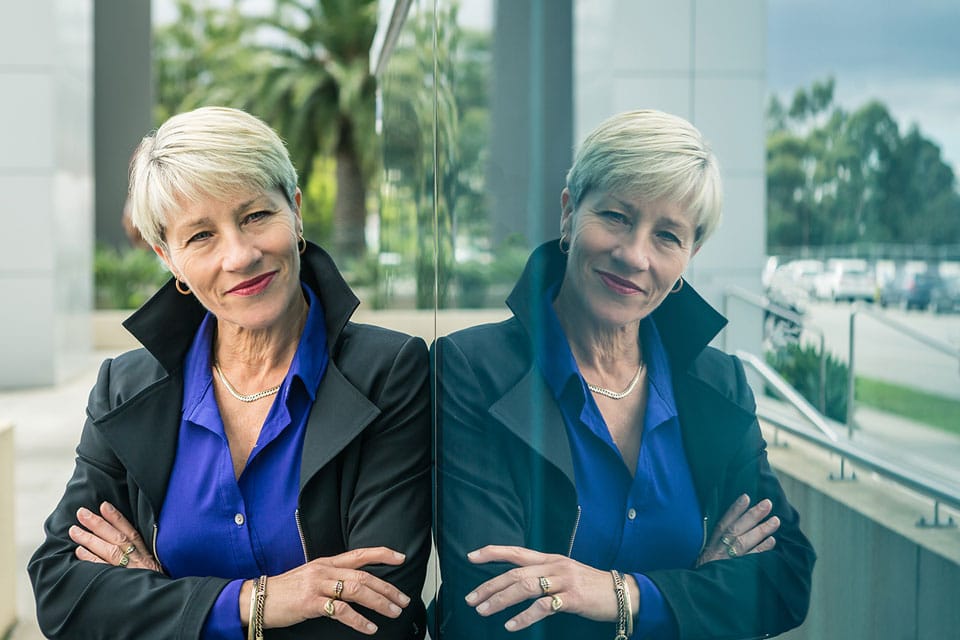Purpose means the reason for which something is done, created, or exists. From a business perspective, there are three purposes upon which to build a brand – Profit, Promise, and Planet – and all three purposes can happily co-exist.
Profit is an expression of purpose for the benefit of business shareholders. Promise is an expression of purpose for the benefit of the customer. Planet is an expression of purpose for the benefit of humanity. While it’s a fundamental reality that building a sustainable business requires making a profit by delivering on a brand promise, research shows that those companies that embrace a higher planet-led purpose, can connect more deeply with stakeholders and drive greater organisational performance, both of which contribute towards building a strong positive reputation.
A declaration of purpose reveals what a company believes in; the cause it has aligned itself with to express what it stands for as a brand and to help employees answer the question, ‘why am I here?’. Some of the most successful brands have compelling purpose statements about the cause they believe in. Here’s a few examples:
- Maker of durable outdoor clothing products that cause less harm to the environment, Patagonia, expresses its purpose as, ‘We’re in business to save our home planet’. This purpose has underpinned its recent decision to establish the Patagonia Purpose Trust to protect its values, and channel excess profits to the Holdfast Collective, to fight the environmental crisis, protect nature and biodiversity, and support thriving communities.
- Virgin puts purpose at the core of its identity – ‘What makes us Virgin?’ – with its declaration that ‘For five decades, in five sectors and on five continents, our purpose is to change business for good’. Founder Richard Branson’s daughter Holly, is Chief Purpose and Vision Officer, driving the alignment of purpose across the group’s various brands.
- Electric vehicle manufacturer Tesla believes ‘the faster the world stops relying on fossil fuels and moves towards a zero-emission future, the better’. This belief drives its mission ‘to accelerate the world’s transition to sustainable energy’ and vision of ‘a world powered by solar energy, running on batteries and transported by all-electric vehicles’.
- CRM software developer Salesforce’s co-CEO Marc Benioff says, ‘Companies can do more than just make money, they can serve others. The business of business is improving the state of the world’. This belief drives its core values of trust, customer success, innovation and equality of every human being.
However, you don’t have to be a big-name brand to be purpose-led. One of my favourite small businesses, L&D Picturesque Painting, a female-owned and operated painting business, is not only renowned for its punctual and precise painting prowess, it’s also trailblazing a new path for women in trade industries by helping create a world where females are empowered, encouraged, and full of confidence to get out there and give it a go. They’ve committed to ‘leading by example and being positive role models for women in a traditionally male-dominated industry’.
Expressing purpose can be a competitive advantage in a marketplace where purpose is influencing choice and decision-making. According to PwC, Millennials are 5.3 times more likely to stay with an employer when they have a strong connection to their employer’s purpose compared to 2.3 times for non-Millennials. Furthermore, Deloitte found that those who are satisfied with their employers’ societal and environmental impact, and their efforts to create a diverse and inclusive culture, are more likely to want to stay with their employer for more than five years.
The value of illuminating purpose is not lost on leaders, with a global survey of executives by Harvard Business Review and EY Beacon Institute finding that companies that align their brand to a higher purpose experience more success and connect more deeply with stakeholders. Those companies that clearly identified their purpose as ‘an aspirational reason for being which inspires and provides a call to action for an organisation and its partners and stakeholders, and provides benefit to local and global society’ enjoyed higher growth rates and higher levels of success in transformation and innovation initiatives. They also reported that their customers were more loyal and their employees more engaged.
One of the most powerful brand-defining and reputation-building things an organisation can do is to align and integrate purpose, as a pillar of culture, with corporate communications, customer experience and citizenship. When organisational beliefs, values and purpose (culture) are embedded within marketing messages, branding and channels (communications), then faithfully delivered upon through the product/service (customer experience) and ESG initiatives (citizenship), the consistency of intentions, words and actions builds brand credibility, fosters trust and enhances reputation. This alignment also creates more cohesive and engaged organisations, because the thinking, language and behaviours of employees are based on a shared understanding of why the organisational exists and what it aims to achieve. Over time, this consistency improves organisational results, relationships and reputation.
When you build a brand based on a planet-led purpose, you become a beacon to prospective employees and customers who believe in your cause. The potent energy force fuelled by this collective mindset will, ultimately, define your brand and shape a great reputation.
Written by Ros Weadman.
Have you read?
Best Business Schools In The World For 2022.
Best Fashion Schools In The World For 2022.
Best Hospitality And Hotel Management Schools In The World For 2022.
Best Medical Schools In The World For 2022.
The World’s Best Universities For Doctor of Business Administration (DBA), 2022.
Track Latest News Live on CEOWORLD magazine and get news updates from the United States and around the world.
The views expressed are those of the author and are not necessarily those of the CEOWORLD magazine.
Follow CEOWORLD magazine headlines on: Google News, LinkedIn, Twitter, and Facebook.
Thank you for supporting our journalism. Subscribe here.
For media queries, please contact: info@ceoworld.biz
























































![Key Metrics for Social Media Marketing [Infographic] Key Metrics for Social Media Marketing [Infographic]](https://www.socialmediatoday.com/imgproxy/nP1lliSbrTbUmhFV6RdAz9qJZFvsstq3IG6orLUMMls/g:ce/rs:fit:770:435/bG9jYWw6Ly8vZGl2ZWltYWdlL3NvY2lhbF9tZWRpYV9yb2lfaW5vZ3JhcGhpYzIucG5n.webp)




















